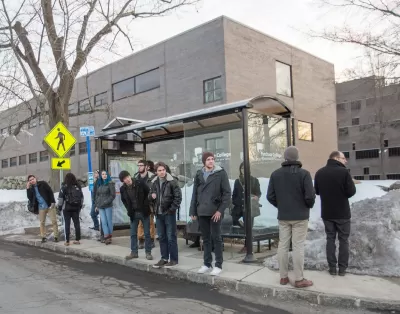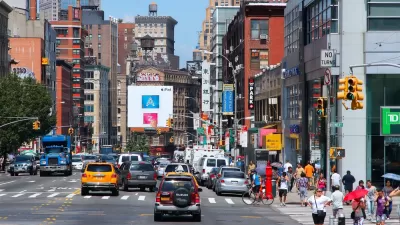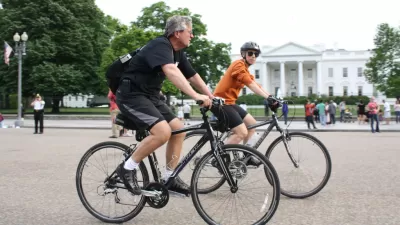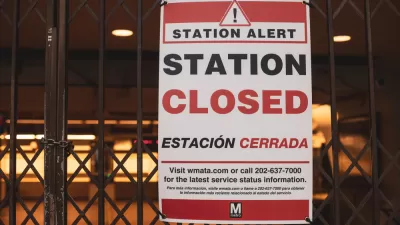Transit is not providing what many travelers need, in terms of both location and service. The result is that transit use is a time and financial burden for those who can least afford it.

Joseph P. Williams takes a closer look at the challenges of commuting by transit, particularly for low-income riders and those traveling from areas where service is lacking. Transit can be a time-consuming and costly mode for people who have difficulty accessing it or are dependent on unreliable systems.
Williams draws from his own experience when he found himself several years ago unemployed and living without a car in an upscale suburb of Washington, D.C., where buses only ran twice an hour and were often not on schedule. "Besides fighting through the common frustrations every commuter experiences, riders from transit deserts must deal with the aggravation of possibly missing the bus and enduring a long wait for the next one," says Williams.
He adds that transit systems in cities such as Washington, D.C., and New York are in dire need of maintenance, and ridership has dropped as service quality has decreased. "People who can afford to are voting with their wallets: buying cars, using alternative transportation services like Uber, or moving closer to the city to cut down on their commutes, in the process driving up housing costs and adding to traffic congestion," notes Williams.
But many transit-dependent riders cannot make such shifts, and fare increases and service cuts make transit use even more difficult. "Those twin costs of time and money add up across the income spectrum: White-collar workers like [Carrie] Blough have to run faster and longer just to stay in place, while [Karen] Allen and other hourly-wage employees who want to get ahead have to fight against bigger financial and logistical burdens," writes Williams.
FULL STORY: In an Unequal America, Getting to Work Can Be Hell

Alabama: Trump Terminates Settlements for Black Communities Harmed By Raw Sewage
Trump deemed the landmark civil rights agreement “illegal DEI and environmental justice policy.”

Planetizen Federal Action Tracker
A weekly monitor of how Trump’s orders and actions are impacting planners and planning in America.

The 120 Year Old Tiny Home Villages That Sheltered San Francisco’s Earthquake Refugees
More than a century ago, San Francisco mobilized to house thousands of residents displaced by the 1906 earthquake. Could their strategy offer a model for the present?

Ken Jennings Launches Transit Web Series
The Jeopardy champ wants you to ride public transit.

BLM To Rescind Public Lands Rule
The change will downgrade conservation, once again putting federal land at risk for mining and other extractive uses.

Indy Neighborhood Group Builds Temporary Multi-Use Path
Community members, aided in part by funding from the city, repurposed a vehicle lane to create a protected bike and pedestrian path for the summer season.
Urban Design for Planners 1: Software Tools
This six-course series explores essential urban design concepts using open source software and equips planners with the tools they need to participate fully in the urban design process.
Planning for Universal Design
Learn the tools for implementing Universal Design in planning regulations.
Clanton & Associates, Inc.
Jessamine County Fiscal Court
Institute for Housing and Urban Development Studies (IHS)
City of Grandview
Harvard GSD Executive Education
Toledo-Lucas County Plan Commissions
Salt Lake City
NYU Wagner Graduate School of Public Service





























